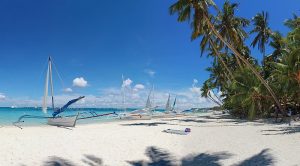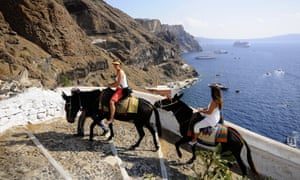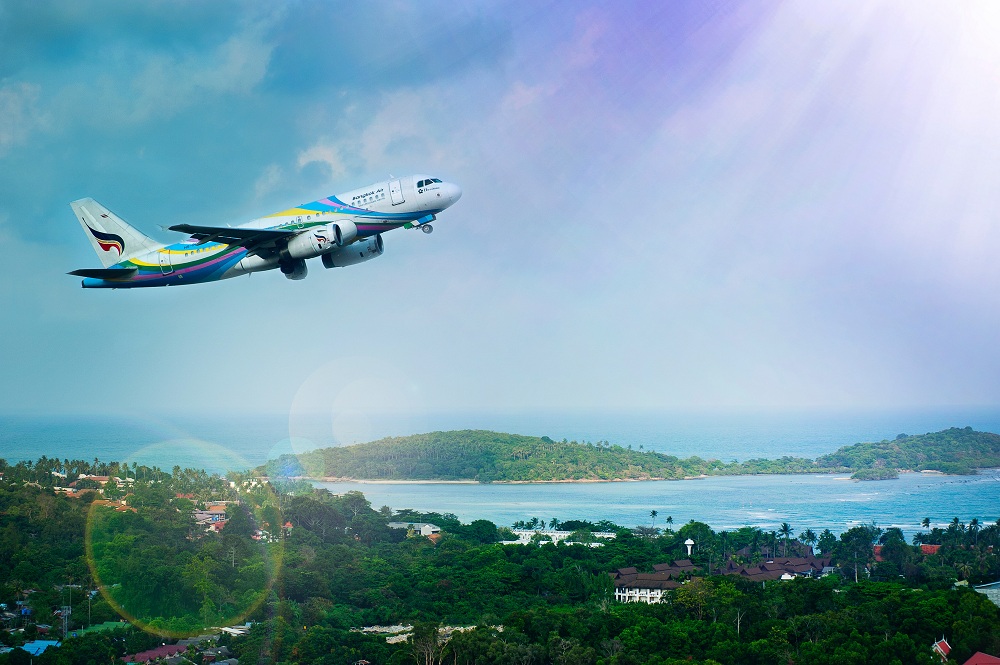We can all agree that traveling has been increasing in popularity in the last twenty years. We all know someone who has “Travel the World” in their life’s bucket list. We see an increasing number of young people taking a gap year and spending it traveling in the other side of the world. In 2016, tourism has contributed 7.6 trillion U.S. dollars to the global economy. The United Nations World Tourism Organization (UNWTO), puts the number of international arrivals in the world in 1990 at 439.4 million. That number has almost tripled less than twenty years later. Data from 2016 shows 1.24 billion international arrivals worldwide with Europe contributing to 50% of the total followed by Asia and The Pacific at 25%.
The UNWTO estimates that millenials – classified as those born between 1981 and 1996 – make up 20% of all international tourists. According to American Express Business Insight, this age group is the fastest growing segment when it comes to money spent on travel. Of all the economies millennials are accused of killing, the tourism industry is the one that they have collectively kept alive and well because they value life experiences more than things. Studies have shown that millenials put off life milestones like marriage, buying a house, and having children to travel.
 Global connectivity also contributed to the rise in tourism. Everything is accessible. You can plan a one-month trip or longer in just one night with the help of the internet. All the resources from the best castles to visit in Romania to how much money you need to spend to enjoy a full week in the beaches of Cancun. With connectivity also comes the possibility to work remotely which allows travelers to have continuous income while on holiday. It brought in social media which bombards you everyday with new destinations and experiences. Your high school friend went to Tuscany to learn how to cook a bomb ravioli and now you want to top that.
Global connectivity also contributed to the rise in tourism. Everything is accessible. You can plan a one-month trip or longer in just one night with the help of the internet. All the resources from the best castles to visit in Romania to how much money you need to spend to enjoy a full week in the beaches of Cancun. With connectivity also comes the possibility to work remotely which allows travelers to have continuous income while on holiday. It brought in social media which bombards you everyday with new destinations and experiences. Your high school friend went to Tuscany to learn how to cook a bomb ravioli and now you want to top that.
The Ugly Side of Tourism
Airline companies have taken advantage of this demand by offering flights at lower prices than ever. Gone are the days when only the upper class could afford to travel to the other side of the world. New destinations are being offered all the time making hard to reach places easily accessible. What we do not consider is that, more often than not, these “road less traveled” destinations are not equipped to handle a sudden influx of tourists.
 There are not enough regulations being implemented to make sure tourism does not destroy the environment. This is true especially for developing countries which are attracting hundreds of thousands of tourists every year. Take the famous island of Boracay in the Philippines as an example. It has recently been closed to rehabilitate after decades of being a top tourist destination. The small island’s infrastructure is not enough and sewage systems have not been regulated. There are famous diving and snorkelling spots in the world where local guides are not educated on the impacts of disturbing the natural habitat of underwater creatures.
There are not enough regulations being implemented to make sure tourism does not destroy the environment. This is true especially for developing countries which are attracting hundreds of thousands of tourists every year. Take the famous island of Boracay in the Philippines as an example. It has recently been closed to rehabilitate after decades of being a top tourist destination. The small island’s infrastructure is not enough and sewage systems have not been regulated. There are famous diving and snorkelling spots in the world where local guides are not educated on the impacts of disturbing the natural habitat of underwater creatures.
Another negative impact of tourism is the amount of waste it generates. Hotels, restaurants and other facilities designed for tourists use huge amounts of on-the-go products, very often packed in personal single-use plastic packaging. This is problematic especially for places with limited waste management systems. According to the United Nations Environment Programme (UNEP), tourists produce an estimated 4.8 million tonnes or 14 percent of all solid waste each year.
Tourism has also tolerated and enabled animal abuse. Animals are used as captives for display and entertainment such as in zoos and aquariums which do not always provide the best care for the animals. Some animals used for shows like the painting elephants in Thailand which, animal rights activists say, were subjected to torture before they even learn to hold the brush with their trunks. Animals are also used as porters and carriers not only of things but also of the tourists themselves. This practice has been put on international spotlight recently when the Greek government has passed a legislation to protect donkeys used for tourism in the famous island of Santorini. The donkeys were used to carry tourists (mostly coming from cruise ships) 400 meters up to the island’s clifftop capital which resulted in spinal injuries and extreme exhaustion. Lastly, tourism also enables the barbaric practice of using animals for competition and sport. Bullfighting is still very much alive and present in some parts of the world. There are still dozens of tour operators in Scotland that offer all-inclusive hunting trips.

Tourism also eats up resources. Various studies have been conducted on the disparity of communities’ water and electricity consumption during lean tourism season versus during the peak tourism season. The tourism industry accounts for a minor share in the global water consumption but it makes a difference in regions where water is scarce and renewal rates are limited. Hotels and luxury resorts uses up huge amounts of electricity for the upkeep and maintenance of their facilities – from lighting to in-house laundries.
Sustainable Travel
Traveling is a good thing for personal growth and it boosts economies but we always need to be mindful of how we, as travelers, are affecting the places that we visit. Luckily, young people are now more conscious than ever about how to leave a positive impact while traveling. There is a significant buzz about ecotourism and sustainable traveling.
 Next time you go on holiday, think about how much water you are using. Don’t forget to switch off the lights and electronic devices when you leave your accommodation. Let us stop the “I paid for it so I get to use it” mentality and just consume what is necessary. Do not litter. It is a basic rule of respect and decency but a lot of people needs to be reminded. Better yet, try to avoid trash when possible like bringing a reusable drinking container instead of buying bottled water all the time.
Next time you go on holiday, think about how much water you are using. Don’t forget to switch off the lights and electronic devices when you leave your accommodation. Let us stop the “I paid for it so I get to use it” mentality and just consume what is necessary. Do not litter. It is a basic rule of respect and decency but a lot of people needs to be reminded. Better yet, try to avoid trash when possible like bringing a reusable drinking container instead of buying bottled water all the time.
We all want to see the beauty of the world and experience the joy of travel. Let us all do our part in making sure that we do not rob others and the future generation of these experiences.
